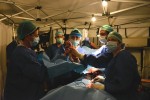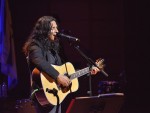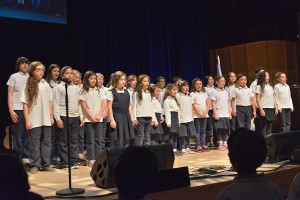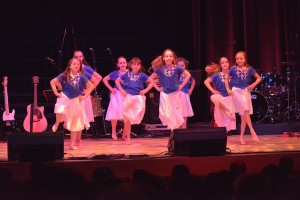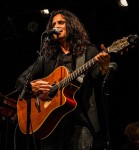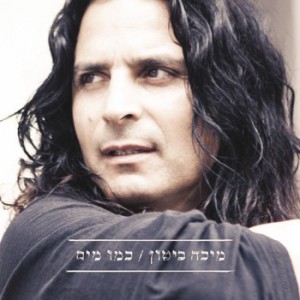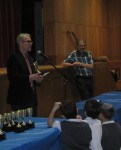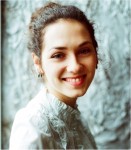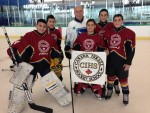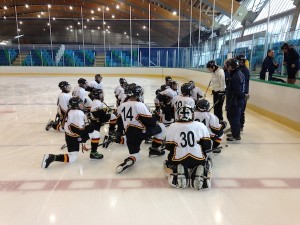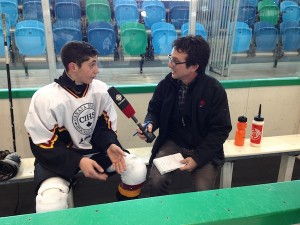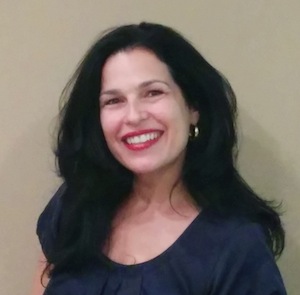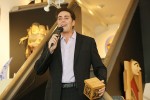The 2014 Jewish Federation annual campaign has closed with a record achievement of $8 million, which is an increase of $290,000 from last year. Funds will support critical programs and services on which thousands of community members rely.
Harvey Dales, general chair of the campaign, said it is “a true community achievement – for our community, and by our community. I remain amazed and inspired by this community and the support received from thousands of donors and hundreds of volunteers. In fact, 93% of the total was raised by volunteer canvassers, who contacted their fellow community members to discuss how they could help address the needs of our Jewish community. Despite ever-increasing demands made on us all, the love and generosity that our donors bestow on those in need of a little more support is astounding. This incredible $8 million achievement is significant, particularly in terms of the people, programs and institutions that will benefit from our commitment to tzedaka.”
One of the keys to success was a fund that saw donors’ new and increased gifts doubled through a matching gifts program supported by several major donors. This helped inspire many donors to make first-time gifts to the campaign or to increase their gifts, and helped the campaign reach its record.
Jewish Federation was named a top 20 charity in British Columbia by the Vancouver Sun in 2012 – the most recent rankings to date – and scored particularly well with respect to its low administrative and fundraising costs. Canada Revenue Agency guidelines indicate the cost of fundraising should be below 35%, but Jewish Federation’s is below this with a net cost of fundraising for the 2014 annual campaign of 12.5%.
From the pages of the JI
Jewish Federation of Greater Vancouver describes itself as an organization “committed to strengthening the quality of Jewish life locally, in Israel and around the world, and to creating a vibrant, caring and inclusive community. Its work is inspired by the Jewish values of tikkun, tzedaka, klal Israel and chesed,” working “in collaboration with many partners locally, nationally and abroad. Its efforts are combined with other Jewish communities in Canada through Jewish Federations of Canada-United Israel Appeal, and in Israel through Keren Hayesod-United Israel Appeal and the Jewish Agency for Israel.”
Federation has been around longer than most of us, and the JWB/JI has been reporting on its activities from the very beginning.
The Sept. 1, 1932, JWB reports on the creation of the “Formation of Vancouver Jewish Administrative Council Ratified by Members of Centre, Chest and Hebrew Aid Society.” The subheading reads, “Enthusiastic Meeting Last Monday Elects First Board of Twenty-four to Serve For Period of Two Years.” A year later, in July 1933, the JWB reported, “Formation of an Endorsation Bureau Unanimously Endorsed.” The full text of both articles follows.
From the JWB, 1932
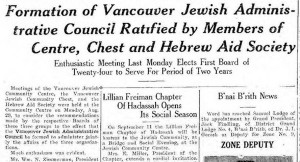 Meetings of the Vancouver Jewish Community Centre, the Vancouver Jewish Community Chest, and the Hebrew Aid Society were held at the Community Centre on Monday, Aug. 29, to consider the recommendations made by the respective Boards of these three groups to the effect that the Vancouver Jewish Administrative Council be formed to administer jointly the affairs of the three organizations.
Meetings of the Vancouver Jewish Community Centre, the Vancouver Jewish Community Chest, and the Hebrew Aid Society were held at the Community Centre on Monday, Aug. 29, to consider the recommendations made by the respective Boards of these three groups to the effect that the Vancouver Jewish Administrative Council be formed to administer jointly the affairs of the three organizations.
Much enthusiasm was evident.
Mr. Wm. N. Zimmerman, President of the Vancouver Jewish Community Centre, opened the meeting, convened as the Community Centre meeting. He explained briefly the purpose of the meeting, and the advantages to be derived through amalgamated administration, not only in the saving of administrative costs, but in the conservation of time and energy of the workers in the community. He stated, “This amalgamation of administration will not only save money for the three organizations, but will avail for us the best men and women power of the city, that will administer the affairs of the three Boards jointly.”
Upon motion by Dr. S. Petersky, and seconded by L. Gorosh, the members of the Vancouver Jewish Community Centre ratified the recommendation of their Board of Governors, and approved the formation of the Vancouver Jewish Administrative Council.
Following this motion, the meeting of the Jewish Community Centre adjourned, and the Vancouver Jewish Community Chest meeting was called to order.
In the absence of Mrs. M. Koenigsberg. President of the Vancouver Jewish Community Chest, Mr. Wm. N. Zimmerman was requested to preside at the Chest meeting.
The Trustees of the Community Chest, through their acting chairman, Mr. Zimmerman, brought before their members their recommendation as follows: “The Trustees of the Vancouver Jewish Community Chest recommend the formation of the Vancouver Jewish Administrative Council, for the purpose of jointly administering the affairs of the Vancouver Jewish Community Centre, the Vancouver Jewish Community Chest, and the Hebrew Aid Society.”
After considerable discussion by members of the Chest, regarding the proposed amalgamation of administration, and after the Constitution of the Administrative Council was read by Mr. E.R. Sugarman, it was unanimously resolved by the Chest members “That the Vancouver Jewish Administrative Council be formed to jointly administer the affairs of the Vancouver Jewish Community Centre, the Vancouver Jewish Community Chest, and the Hebrew Aid Society.” The Chest meeting then adjourned.
Mr. M. L. Greene, President of the Hebrew Aid Society, was called to preside at the meeting, convened as the Hebrew Aid Society. His interpretation of the situation was that the Hebrew Aid Society would remain intact under the advisorship and control of the Administrative Council. After considerable discussion as to the status of the respective organizations under the Administrative Council, the vote was taken, and the Hebrew Aid Society approved the recommendation of their trustees, “That the Vancouver Jewish Administrative Council be formed to jointly administer the affairs of the Vancouver Jewish Community Centre, the Vancouver Jewish Community Chest, and the Hebrew Aid Society.”
Following the motion, the meeting of the Hebrew Aid Society was adjourned, and Mr. W.J. Levin, acting chairman of the Vancouver Jewish Administrative Council, presided.
Mr. Levin stated, “This Administrative Council is created for the welfare of the Jewish Community in Vancouver. The men and women who in the past were able to give freely of their time to communal activities, are now forced to devote a large part of their time to business owing to the depressed economic conditions prevailing. Organizations in the city have been suffering through lack of proper workers. This joint administration will not only save administrative costs, but will conserve and co-ordinate the time and energy of the volunteers. We will unite as one, and work for a common purpose, the welfare of the Community.”
Mr. E.R. Sugarman moved that the constitution as read be adopted for the Vancouver Jewish Administrative Council. This motion was seconded by Dr. Petersky, and carried.
Nominations
The Chairman explained that under the Constitution as adopted, a Board of 24 must be elected and that the sub-committee working out plans for the formation of the Vancouver Jewish Administrative Council have nominated 21 names for election. To this list could be added nominees from the floor. The enthusiasm of the meeting was so great that thirty names were nominated, and those elected to the first Board of the Vancouver Jewish Administrative Council are as follows: M.H. Brotman, Sam Chess, Mrs. Nellie GeShaye, E.M. Goldsmith, L. Gorosh, M.L. Greene, A.G. Hirschberg, Mrs. H.B. Kalin, I.J. Klein, A.O. Koch, Mrs. M. Koenigsberg, J.L. Kostman, J.J. Lechtzier, P. Lesser, N.C. Levin, W.J. Levin, Mrs. H.A. Nemetz, J. Reed, H. Rosenbaum, S. Rothstein, I. Stein, E.R. Sugarman, Wm. N. Zimmerman and H.B. Kahn.
***
From the JWB, 1933
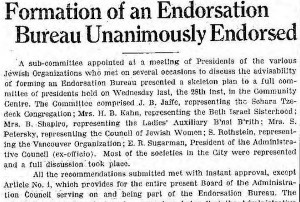 A sub-committee appointed at a meeting of Presidents of the various Jewish Organizations who met on several occasions to discuss the advisability of forming an Endorsation Bureau presented a skeleton plan to a full committee of presidents held on Wednesday last, the 28th inst, in the Community Centre, The Committee comprised J.B. Jaffe, representing the Schara Tzedeck Congregation; Mrs. H.B. Kahn, representing the Beth Israel Sisterhood; Mrs. B. Shapiro, representing the Ladies’ Auxiliary B’nai B’rith; Mrs. S. Petersky, representing the Council of Jewish Women; S. Rothstein, representing the Vancouver Organization; E.R. Sugarman, President of the Administrative Council (ex-officio). Most of the societies in the City were represented and a full discussion took place.
A sub-committee appointed at a meeting of Presidents of the various Jewish Organizations who met on several occasions to discuss the advisability of forming an Endorsation Bureau presented a skeleton plan to a full committee of presidents held on Wednesday last, the 28th inst, in the Community Centre, The Committee comprised J.B. Jaffe, representing the Schara Tzedeck Congregation; Mrs. H.B. Kahn, representing the Beth Israel Sisterhood; Mrs. B. Shapiro, representing the Ladies’ Auxiliary B’nai B’rith; Mrs. S. Petersky, representing the Council of Jewish Women; S. Rothstein, representing the Vancouver Organization; E.R. Sugarman, President of the Administrative Council (ex-officio). Most of the societies in the City were represented and a full discussion took place.
All the recommendations submitted met with instant approval, except Article No. 1, which provides for the entire present Board of the Administration Council serving on and being part of the Endorsation Bureau. The principal argument against such a procedure being that the Administrative Council was elected for the specific purpose of administering the affairs of the Hebrew Aid, The Jewish Community Centre and the Community Chest, and with a representation of twenty-four members they would have increased powers for which their constitution did not provide, and which would enable them if they so desired to veto any project brought before them by the increased new representatives. The Chairman, Mr. E.R. Sugarman, explaining that by virtue of the newly formed organization each new member elected would have a seat of the Administrative Board and become part and parcel of the Board. If it were, however, necessary he felt that the Board though elected for two years (of which they had only served one) would be willing to resign en masse and that a new election could take place and such alterations as were necessary would be made in the Constitution of the Administrative Council at a meeting of Contributors specially called for that purpose.
This explanation seemed to allay the objections raised and on a vote being taken every representative present voted unanimously [in] its favor. It was further arranged that the plan be submitted to a mass meeting on Sunday, July 30, at which meeting the delegates of the Western Conference in Winnipeg would be present and submit their report.
Report of the Sub-Committee
We, the Sub-Committee appointed by the Chairman, E.R. Sugarman, to bring in a skeleton plan for the formation of an Endorsation Bureau in Vancouver, DO HEREBY BEG TO STATE that we have seriously considered the question from all angles and make the following recommendations to you:
- That the existing organization, known as the Vancouver Jewish Administrative Council, be enlarged to include the Presidents of fifteen organizations, a list of which we hereby append, and this newly constituted body have the powers heretofore existing in the Administrative Council and be further clothed with the power to supervise and endorse all matters or projects of a community nature whether the same be initiated by organizations or groups of individuals.
- That the said body further be considered in the position of speaking on behalf of the whole Jewish Community of Vancouver, particularly in matters which are submitted to the Community to act as a unit.
- The right to supervise or interfere with the private management of any organization shall be specifically eliminated.
- That endeavours be made immediately to consolidate the Junior Organizations into a Council of their own and when so consolidated the Juniors to have not more than two representatives on the new Board.
- That a mass meeting of the citizens of Vancouver be called immediately for the purpose of submitting this new proposition to the Community and have its endorsation of this plan.
All of which is respectfully submitted,
(Signed) E.R. SUGARMAN, Chairman.
The list of organizations referred to is as follows: Samuel Lodge B’nai B’rith, Zionist Organization, Ladies’ Auxiliary B’nai B’rith, Hadassah Organization, Council of Jewish Women, The Schara Tzedeck Organization, Beth Israel Congregation, Community Talmud Torah, Cemetery Board, Ladies’ Auxiliary Talmud Torah, Pioneer Women’s Society, Achudth Society, Poalie Zion Society, Mizrachi Society, The Beth Israel Sisterhood.
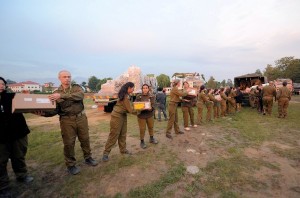 To date, JDC has operated on three fronts in Nepal: the deployment of its expert disaster relief team on the ground; the support of locally based partners to ensure medical care and relief supplies within days of the quake; and the packing and shipping of medical and humanitarian supplies from the United States. These efforts have ensured life-saving medical treatment, food, clean water and shelter for Nepalese victims still reeling from the disaster. It has also enabled the assessment of needs and delivery of aid in real time, in tandem with changes on the ground, and the coordination of JDC’s network of local and international non-governmental partners working in Nepal.
To date, JDC has operated on three fronts in Nepal: the deployment of its expert disaster relief team on the ground; the support of locally based partners to ensure medical care and relief supplies within days of the quake; and the packing and shipping of medical and humanitarian supplies from the United States. These efforts have ensured life-saving medical treatment, food, clean water and shelter for Nepalese victims still reeling from the disaster. It has also enabled the assessment of needs and delivery of aid in real time, in tandem with changes on the ground, and the coordination of JDC’s network of local and international non-governmental partners working in Nepal.
